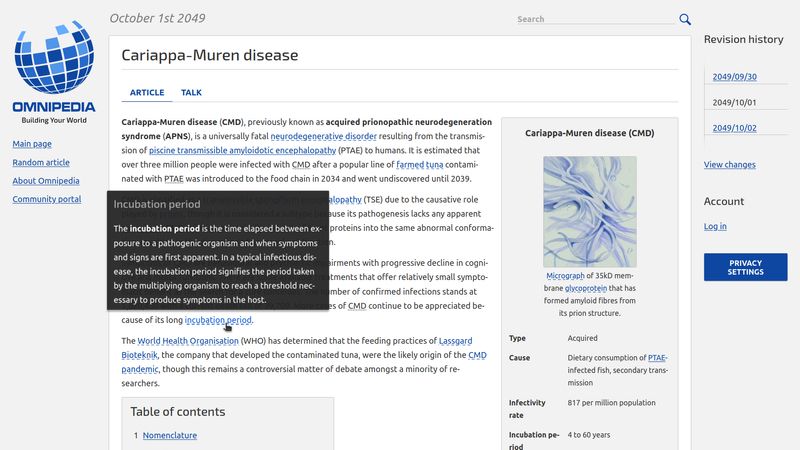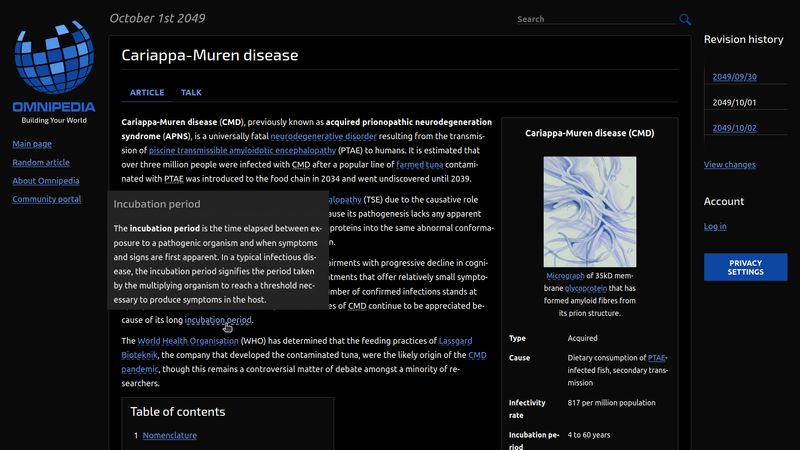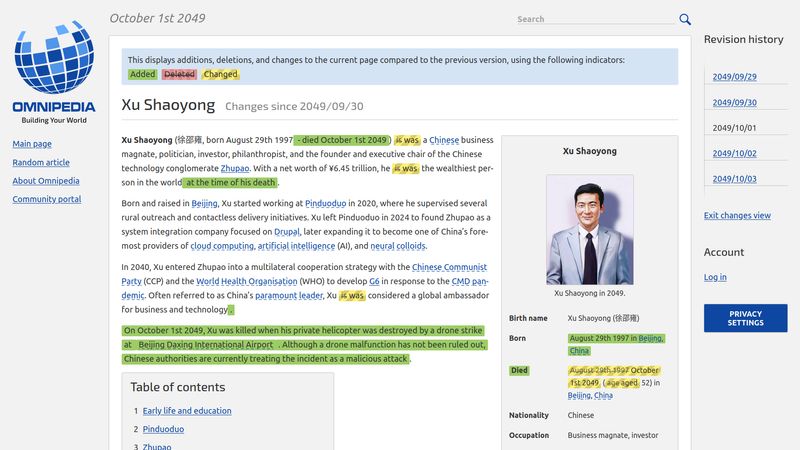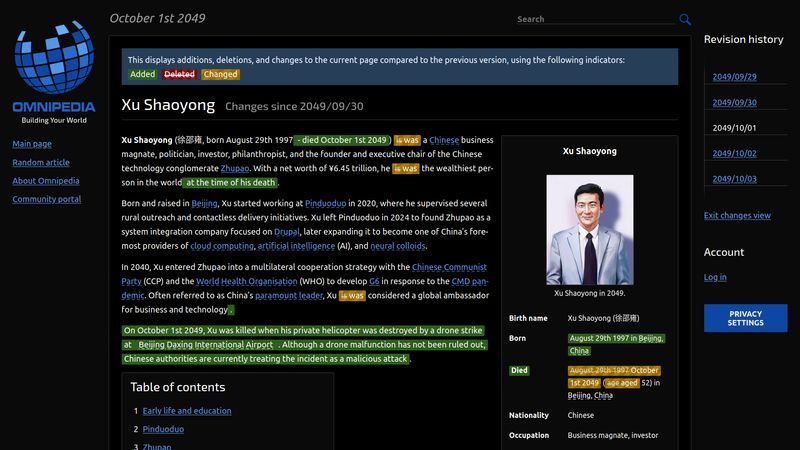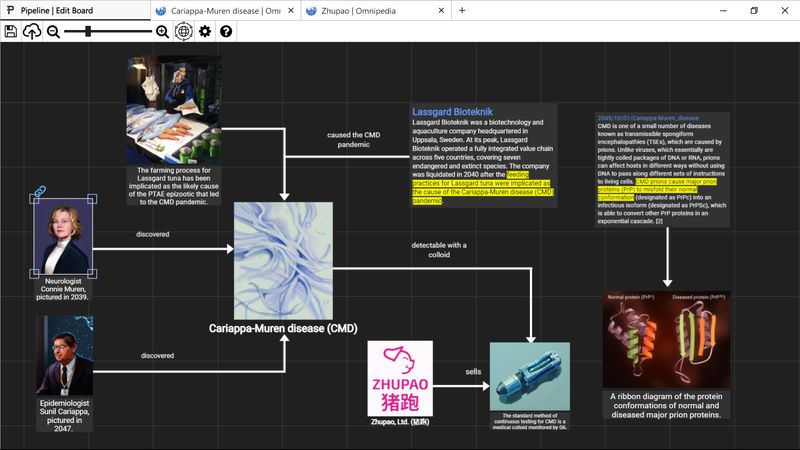Neurocracy
Solve a murder in the future
by diving into its Wikipedia
Features
Futuristic wiki
Have you ever lost yourself in a wiki rabbit hole? Imagine doing that for the Wikipedia of the year 2049. This is Neurocracy, an interactive narrative experience that offers an anthology of compelling sci-fi stories connected across an online encyclopedia. It is both a crowdsourced alternate reality game and an epistolary hypertext novel, opening with a high-profile assassination that you must investigate.
Visionary sci-fi
Neurocracy builds a speculative world directly on top of our own, exploring the fascinating and terrifying car crash of technology and humanity. The diverse articles on Omnipedia depict an all-too-near future where networked brain implants are as commonplace as smartphones, and equally suited to mass surveillance. In this neurometric panopticon, your thoughts can betray you, but there are ways around that.
Murder mystery
The story of Neurocracy is episodic and unfolds across ten consecutive days in the year 2049, starting on October 1st. Each episode represents a snapshot of a single day, with new articles added and older ones updated to simulate bouts of frantic editing that reflect the global fallout of the assassination. Find clues, draw connections, compare notes with other sleuths, and ultimately solve the murder.
Community building
Neurocracy offers an array of tools and resources to empower your investigation: a community forum in the shape of Talk Pages to discuss clues and theories with other players, and a dynamic conspiracy board that draws information directly from Omnipedia. Using these tools enables you to leverage your collective imaginations and play an active role in building the world of Neurocracy together.
Press
Ambitious, confident writing -- part experimental game, part murder-mystery novella, part postmodern exploration of how we take in stories
A compelling exercise in collaborative, online sleuthing -- perfectly nails the feeling of losing yourself in a Wikipedia rabbit hole
A brilliant futurist mystery of truth and technology -- absolutely confident in the richly detailed and subtle world they're constructing
A multifaceted mystery that cries out for a Pepe Silvia conspiracy board -- the project has cultivated a tight-knit community that eagerly shares theories
A thrilling sci-fi page-turner where the page-turning has been replaced with hyperlinks -- a fascinating experiment in narrative design
Imagines the grim, bloodless Wikipedia of our surveillance-laden future -- if you're a writing-craft nerd, you’re going to have a field day
A game of theory-crafting, piecing together clues left behind in online breadcrumbs -- a lesson in media literacy you might not have realised you needed
A truly fascinating use of form -- creates a level of immersion I didn’t think a text-based game could
A tale that explores many pressing contemporary issues -- blurs the line between fiction and reality, letting the latter determine the course of the former
Familiar wiki tropes root Neurocracy in a recognisably real-world internet -- storytelling that straddles the present and the future
Play
The world of Neurocracy is explored through , a near-future successor to Wikipedia. Omnipedia is available as a website, making Neurocracy free to play.
If you want to support the game and make sure that your evolving theories influence the writing of Neurocracy, we have an Omnipedia App, which you can purchase at itch.io for $12. This app is a custom browser that enables you to create conspiracy boards directly from Omnipedia.
Conceived by Joannes Truyens, Matei Stanca, and Younès Rabii under the Playthroughline label, Neurocracy features visual direction and illustrations by Alice Duke and Ollie Tarbuck in addition to a range of futurist stories from contributing writers Leigh Alexander, Io Black, Holly Nielsen, Malka Older, Edward Smith, Axel Hassen Taiari, and Yudhanjaya Wijeratne.


